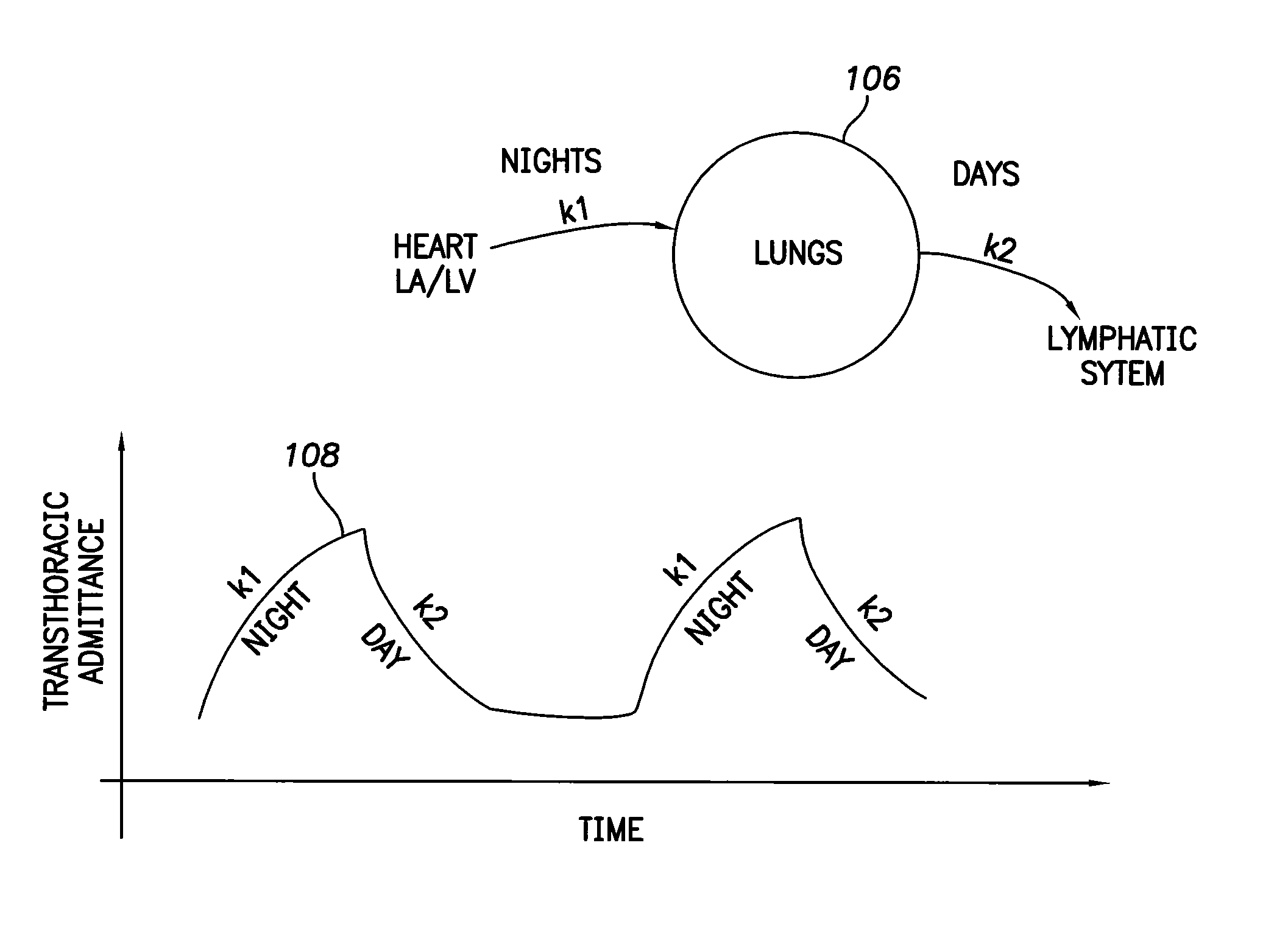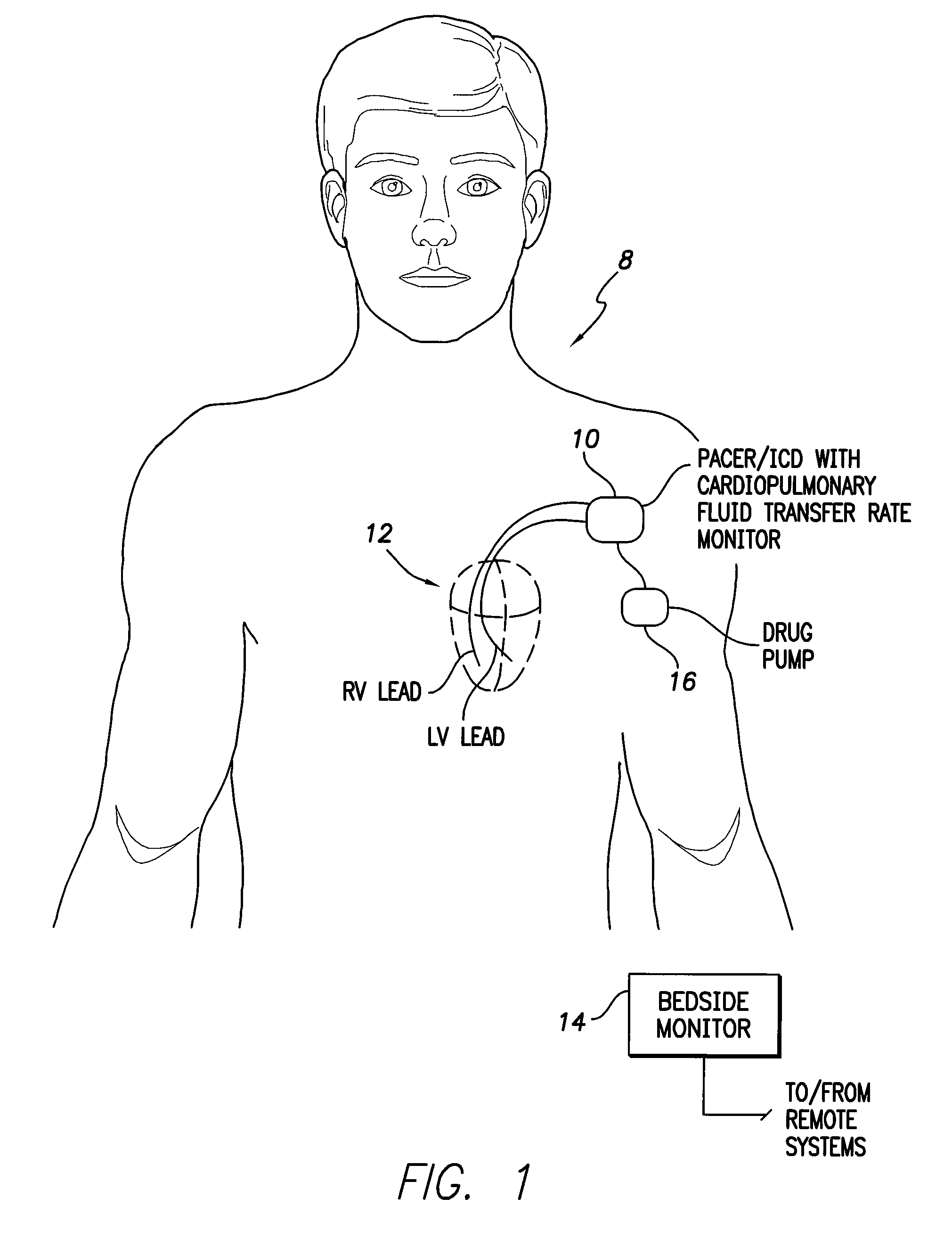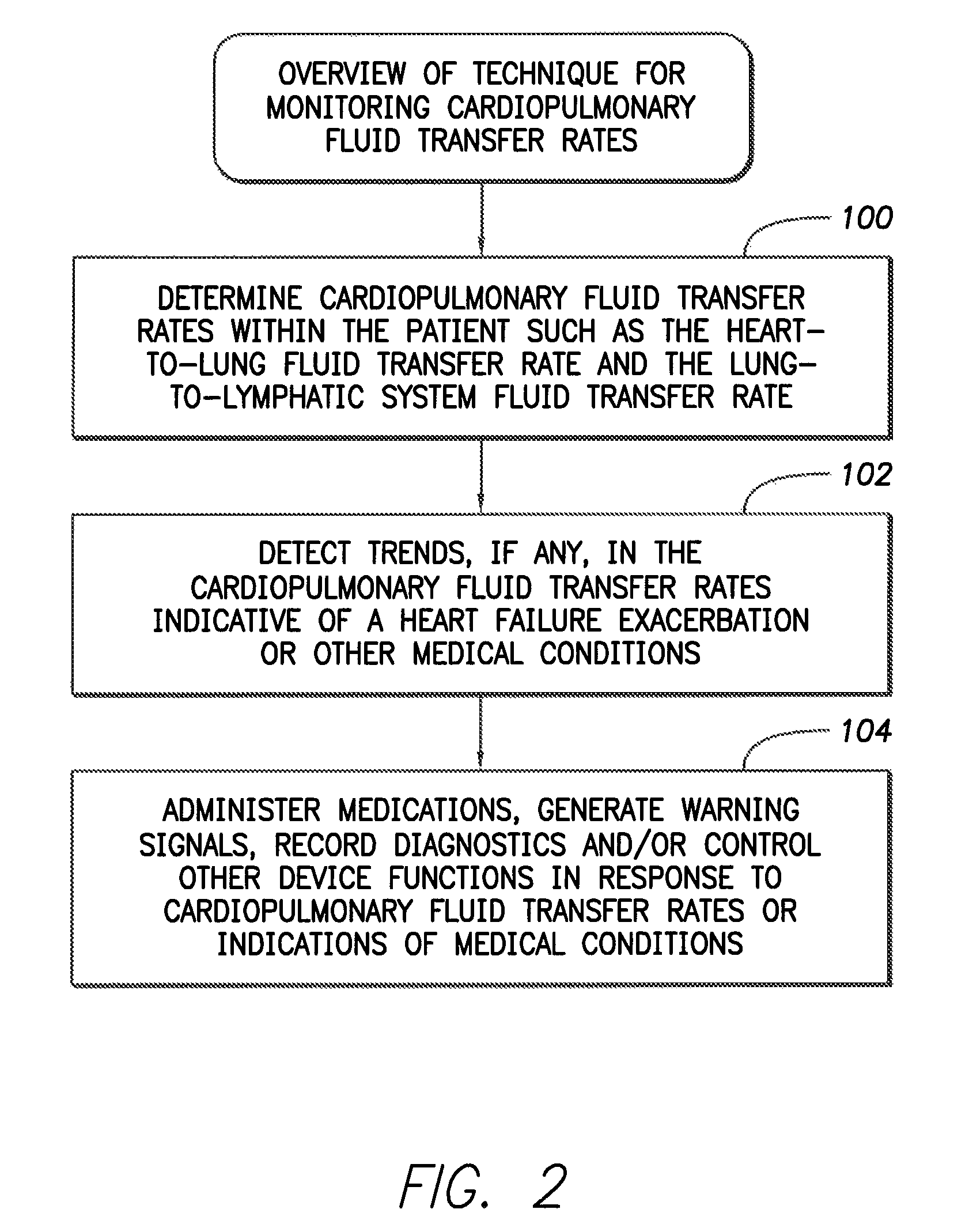System and method for monitoring cardiopulmonary fluid transfer rates using an implantable medical device
a medical device and cardiopulmonary technology, applied in the field of implantable medical devices, can solve problems such as improper removal of fluid from the lung
- Summary
- Abstract
- Description
- Claims
- Application Information
AI Technical Summary
Benefits of technology
Problems solved by technology
Method used
Image
Examples
Embodiment Construction
[0028]The following description includes the best mode presently contemplated for practicing the invention. This description is not to be taken in a limiting sense but is made merely to describe general principles of the invention. The scope of the invention should be ascertained with reference to the issued claims. In the description of the invention that follows, like numerals or reference designators will be used to refer to like parts or elements throughout.
Overview of Implantable System
[0029]FIG. 1 illustrates an implantable medical system 8 capable of monitoring cardiopulmonary fluid transfer rates—including heart-to-lung fluid transfer and lung-to-lymphatic system fluid transfer—and for predicting or detecting heart failure, pulmonary edema, dyspnea or other cardiopulmonary medical conditions. The system is further capable of titrating dosages of diuretics or other medications in response to trends in the fluid transfer rates. To these ends, medical system 8 includes a pacer / ...
PUM
 Login to View More
Login to View More Abstract
Description
Claims
Application Information
 Login to View More
Login to View More - R&D
- Intellectual Property
- Life Sciences
- Materials
- Tech Scout
- Unparalleled Data Quality
- Higher Quality Content
- 60% Fewer Hallucinations
Browse by: Latest US Patents, China's latest patents, Technical Efficacy Thesaurus, Application Domain, Technology Topic, Popular Technical Reports.
© 2025 PatSnap. All rights reserved.Legal|Privacy policy|Modern Slavery Act Transparency Statement|Sitemap|About US| Contact US: help@patsnap.com



